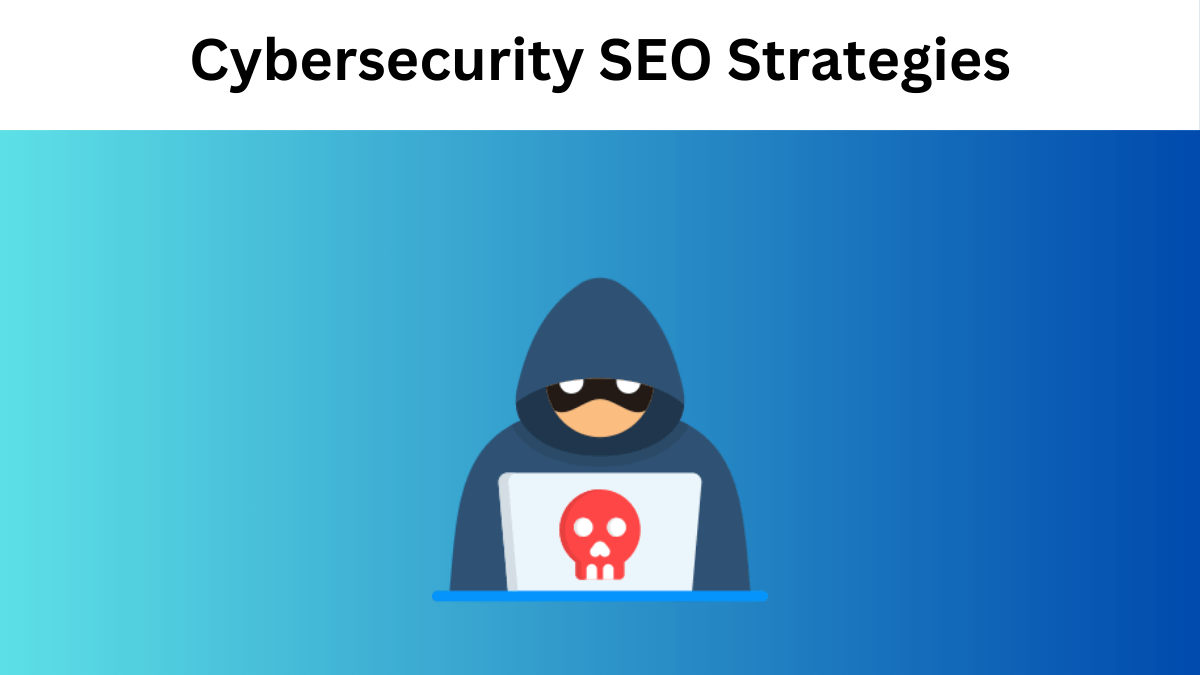SEO Strategies in the Field of Cybersecurity in 2025
The digital battleground is evolving. In 2025, cybersecurity companies face a unique challenge—not just securing networks but ensuring their visibility in a crowded online space. With cyber threats escalating, businesses and individuals are actively seeking trusted security solutions. But how do cybersecurity firms stand out in search engine rankings? The answer: a refined, forward-thinking SEO strategy.
Contents
Understanding the SEO-Cybersecurity Nexus
Cybersecurity firms operate in a high-stakes industry where credibility is everything. Trust signals, expertise, and visibility play a crucial role in conversions. Unlike e-commerce or entertainment, where flashy marketing can attract clicks, cybersecurity SEO requires precision, authority, and constant adaptation to algorithm shifts.
Search engines prioritize expertise and reliability, particularly in security-related content. Google’s E-E-A-T (Experience, Expertise, Authoritativeness, Trustworthiness) framework is stricter than ever. A website that lacks authority will struggle to rank, no matter how optimized its keywords are.
Cybersecurity SEO Strategies for 2025
1. Zero-Click Search Optimization
Google’s featured snippets and knowledge panels dominate results. Cybersecurity companies must tailor content for zero-click searches—concise, authoritative, and formatted for instant answers.
- Use bullet points and direct responses to common security concerns.
- Optimize for “People Also Ask” questions related to cybersecurity threats and solutions.
- Ensure schema markup is correctly implemented to enhance search visibility.
2. Content That Aligns With Search Intent
Cybersecurity search intent varies: some users seek immediate solutions, while others want in-depth research. Address all stages of the user journey:
- Informational: Blog posts on recent cybersecurity trends, regulatory updates, or case studies.
- Navigational: Clear service pages and comparison content for those evaluating providers.
- Transactional: Lead magnets like whitepapers, trial offers, or security audits.
Tip! To better understand how to do this, it is worth looking at your competitors. Do not limit yourself to your local competitors; think broader. For example, look at the actions of international companies or competitors from other regions. If you need to, study how to change your VPN location to see a larger part of the Internet. Do not lock yourself in your home region – this is advice that applies to many SEO tactics.
3. AI and NLP-Optimized Content
Search engines increasingly rely on natural language processing (NLP) and AI-driven ranking models. Keywords alone won’t suffice—context matters.
- Long-form content structured around semantic search.
- Conversational, query-driven writing mimicking real user interactions.
- Integration of cybersecurity terminologies while ensuring readability.
4. The Rise of Video SEO in Cybersecurity
By 2025, video content dominates search results. 87% of marketers report video as a high-ROI strategy (HubSpot, 2024). Cybersecurity firms should leverage:
- Explainer videos on cyber threats and preventive measures.
- Live Q&A sessions on YouTube or LinkedIn, transcribed for blog content.
- Short-form educational reels optimized for TikTok, Instagram, and YouTube Shorts.
All videos must include keyword-optimized titles, transcripts, and structured metadata for search visibility.
5. Cybersecurity-Focused Backlink Strategy
Backlinks remain a ranking pillar, but cybersecurity firms need high-authority link sources. You can see how VeePN VPN builds its backlink strategy – this is a good example. Low-quality links can backfire, reducing trust. Best practices:
- Guest posts on cybersecurity research sites, tech blogs, and industry publications.
- Digital PR strategies—publishing security reports that attract news coverage.
- Partnerships with ethical hacking communities to enhance credibility.
6. Core Web Vitals and Security-Driven UX
Google’s ranking signals now emphasize user experience (UX) and security. Slow, unsecured sites won’t rank well. In cybersecurity SEO, the stakes are even higher.
- Page speed: Load times under 2.5 seconds to retain visitors.
- Mobile-first design: Over 55% of searches now happen on mobile.
- SSL certification & HTTPS: Non-secure sites lose user trust instantly.
7. Local SEO for Cybersecurity Consultants
For security firms offering localized services, local SEO is crucial. Google My Business (GMB) optimization, local backlinks, and geo-specific keywords can make a difference.
- Listings on cybersecurity directories.
- Customer reviews highlighting security solutions.
- Location-based blog content addressing region-specific cyber threats.
8. AI-Generated vs. Human-Driven Content: Striking a Balance
While AI-assisted content creation is on the rise, cybersecurity demands human oversight. Misinformation in security is dangerous. Google penalizes AI-generated content that lacks originality or depth.
- Use AI for research, summaries, and content structuring.
- Human experts should refine and fact-check every article.
- Thought leadership articles remain a differentiator in 2025.
9. Voice Search and Conversational Queries
With the rise of smart assistants and voice search, cybersecurity firms must optimize for natural, question-based searches. By 2025, over 50% of searches are expected to be voice-driven (Statista, 2024).
- Focus on long-tail keywords mimicking how users speak (e.g., “How do I protect my business from phishing scams?”).
- Structure content in an FAQ format to align with voice queries.
- Ensure local SEO optimization, as many voice searches are location-based (e.g., “best cybersecurity firm near me”).
By tailoring content for spoken language, cybersecurity companies can capture a growing segment of mobile and smart device users.
Final Thoughts: Cybersecurity SEO in 2025 Requires Precision
The competition for visibility in cybersecurity is fierce, but success lies in strategic execution. Companies must prioritize E-E-A-T principles, AI-driven search trends, user-focused content, and security-oriented UX. As cyber threats become more sophisticated, so too must the strategies that ensure cybersecurity brands remain at the forefront of digital trust.
A fearless business in this field understands that SEO in 2025 is no longer just about ranking – it’s about being recognized as a credible authority in an industry where trust is everything.
